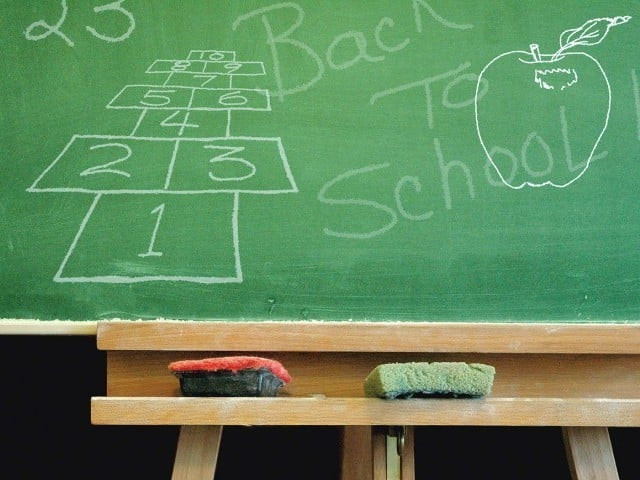What is your child learning in school?: ‘94 per cent children in grade III can’t read’
Annual Status of Education Report highlights differences in rural and urban education in Sindh.

Around 94 per cent of grade III students in Sindh cannot read sentences in English, and 62% cannot read Urdu or Sindhi sentences after being taught in grade II, according to the Annual Status of Education Report 20ll (ASER) Sindh, which was launched on Monday.
The report highlighted the major differences between children, from five to 16 years, in 17 rural areas of Sindh with that of Karachi district.
For example, the enrolment rate of children, between three to five years, was found to be only 38% in rural Sindh while 69% in Karachi.
In the age group of six to 16 years, only 29% of the children were enrolled in schools in rural areas while in Karachi it was 71%.
Around 25% were not attending school at the right age - six to 10 years, in the rural areas. In Karachi, only five per cent did not attend school. In the 17 districts which were surveyed, around 90% attended government schools, 10% private schools and less than one per cent went to madrassahs. It was just the opposite for Karachi – 27% attended public-sector schools while the majority studied in private schools. Kashmore had the most alarming figures – around 45% children in the district did not go to school.
The report also surveyed the studying habits of children. It revealed that private-school students took more tuitions than those studying in public-sector. Around 18% children in rural Sindh, studying in private schools, took tuitions as compared to only 2.6% who went to government schools. The report also stated that there were more girls in government schools in Karachi (63%) while there were more boys in private schools (52%).
The good news
Not all of the facts in the report were alarming. According to it, Karachi had the highest literacy rate for mothers – 82%, as compared to Lahore and Peshawar.
The criticism
The educationists present at the launch criticised the government vehemently for its ‘non-serious attitude.’ However, they put forward some recommendations about how to use the information in the ASER report to good use.
Dr Thomas Christie, the director of the Aga Khan University (AKU) Education Baord, said that the report should also have included the number of languages exposed to children and if they were multilingual.
The director of AKU Institutes for Education D4evelopment, Dr Muhammad Memon, said that questions like why were the head teachers not able to do their jobs effectively and why did they get benefits when they did not even go to schools, needed to be answered as well.
He suggested that the process by which the teachers were selected and how they were prepared should also be examined.
Economist and former advisor to the chief minister, Kaiser Bengali, said that he had presented a charter of school reforms to the chief minister but it never made it to the cabinet. He also shared some features of his proposal, saying that there were 49,000 schools in the province while there was a need for only 15,000. “The principals in government schools should have full authority and should take action against teachers who don’t turn up.” Bengali suggested that the teachers should be relived from election duties.
The executive director of Pakistan Institute of Labour Education and Research, Karamat Ali, thought that education should be provided without religious discrimination. “Half of the country’s children were out of school even after the 18th amendment,” he said. “We have filed a petition in the court to ask it to order the lawmakers to devise laws regarding education.”
Meanwhile, defending the government, a representative of the education department said that he can challenge anyone who said that the teachers were not selected on merit. “About 13,800 teachers were tested by third parties,” he said, referring to the IBA test the teachers had to pass to get regularised.
The launching ceremony was to be performed by Sindh’s minister for education and literacy, Pir Mazhar ul Haq, but he did not turn up.
Published in The Express Tribune, February 14th, 2012.



















COMMENTS
Comments are moderated and generally will be posted if they are on-topic and not abusive.
For more information, please see our Comments FAQ